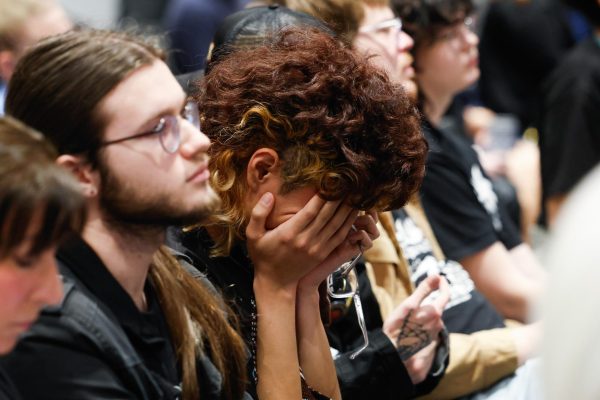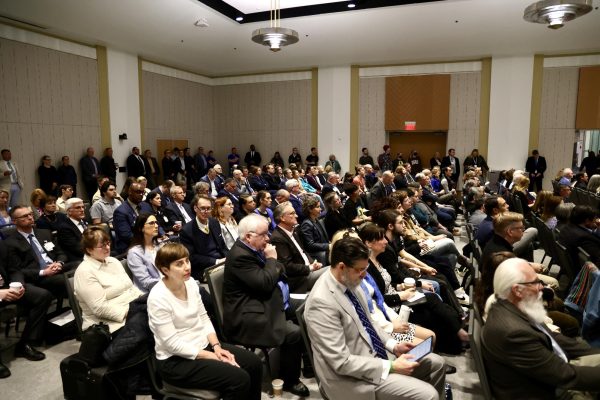Gays, transgenders explore meaning of sex
March 26, 2008
Sitting on the edge of the stage in the Center Theater last night, Sarah Perlmutter defined gender and sex as two different words.
“A person’s sex is what they were born as, but a person’s gender is the sex that feels more natural to them,†said Perlmutter, a sociology sophomore.
Perlmutter, along with several other UK students, led a discussion titled, “In My Shoes: Stories of Our Lesbian, Gay, Bi-sexual, Transgendered, Questioning and Ally Campus and Community.†The discussion was part of the Diversity Dialogues series sponsored by Student Diversity Engagement and the Division of Student Affairs.
The event aimed to raise awareness of harassment toward gay and transgender people, and to allow the panel to share their experiences and answer questions about discrimination.
The main point of the discussion was to educate those who may not understand some of the issues gay and transgender students have to deal with, which is why international studies sophomore Danielle Cole attended.
“As an ally, I want to be more informed,†Cole said. “There are always more issues you can learn about.â€
Political science junior Meredith-Christine Maxwell was born anatomically as a male, but she said before college she realized that her true gender was female. It has been difficult to properly inform people about her gender as a transwoman, she said.
“Sometimes you have to let people stew in their ignorance,†Maxwell said. “Correcting a person too much could lead to anger.â€
Many students in Maxwell’s position have found a safe haven in OUTsource, the university’s resource center for gays, lesbians, bisexuals, transgenders and questioning students. UK’s administration supports the center because it has a positive voice on campus, said Casey Lyons, the co-director of OUTsource.
“People can see we’re making the change on campus that we were put there to make,†said Lyons, an English and Spanish senior.
Perlmutter suggested that the first step in promoting awareness of the intolerance of gays is living by example.
“When something offensive is said about gays, it’s important to speak up,†she said.
Raising awareness of discrimination against gays and trangenders works largely in part in the bonding of diversity on campus, Perlmutter said.
“We’re all trying to do the same thing, so let’s do it together,†she said.





















































































































































